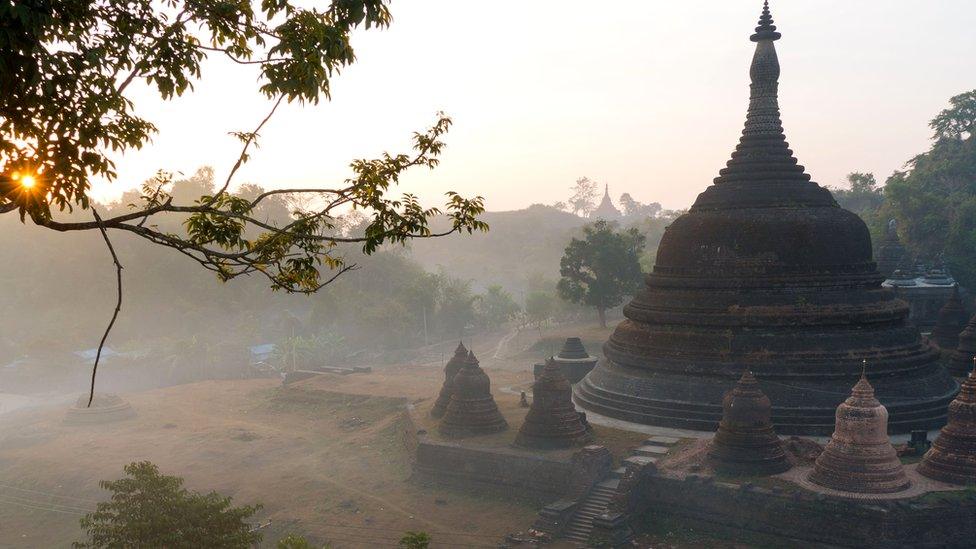Rohingya crisis: Myanmar says first refugee family returns
- Published
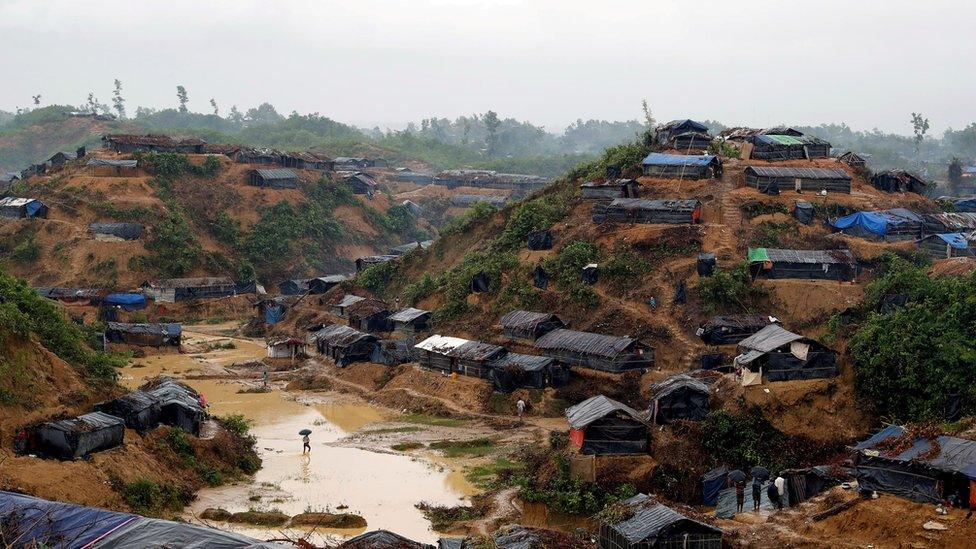
In neighbouring Bangladesh, sprawling camps house a city-sized population of refugees
Myanmar says it has repatriated the first family of Rohingya refugees from Bangladesh, despite a UN warning that it is not safe to return.
Some 700,000 Rohingya have fled across the border to escape a brutal military campaign that began last August.
The UN has accused Myanmar of "ethnic cleansing" - a charge it denies.
Myanmar says five members of a family arrived at a "repatriation camp" on Saturday, and were provided with supplies and ID cards.
If confirmed, this would be the first group of Rohingya repatriated to Myanmar since the crisis began.
The Myanmar government says it has been engaged in a justified campaign against Rohingya militants in Rakhine state.
Earlier this month, it sentenced seven soldiers to prison terms for involvement in the killing of 10 Rohingya men.
Refugees fleeing the country into neighbouring Bangladesh, however, said that such acts were widespread - describing indiscriminate killings, rape, and the burning of villages.
The Rohingya are a mostly Muslim minority ethnic group in Myanmar. They are not recognised by the state, which denies them citizenship and considers them illegal immigrants from Bangladesh.

Who, why, and what safety guarantees?
Analysis by Nick Beake, Myanmar correspondent
A series of posed photographs posted by the Burmese government on Facebook show a man, two women and two children being presented with ID cards with the Myanmar flag in the background.
They're also seen apparently getting medical checks and being interviewed by army officials in uniform.
The first Rohingya family to return to Rakhine State would certainly be a symbolic moment. But the truth is we know little about these people in the photos and the UN is yet to independently confirm their story.
Who are they? Why did they want to return? What guarantee for their safety?
Certainly, many of the Rohingya in Cox's Bazar who give harrowing accounts of rape and murder at the hands of the Burmese military have no intention of going back to the place they called home.
And for those who do, they could well end up stuck in displacement camps for years - which is what happened to previous waves of returnees after earlier outbreaks of violence.

Photos released by Myanmar authorities on Saturday showed what it called a "Muslim" family receiving National Verification Cards. The state does not use the word Rohingya.
The card is a form of ID that does not grant citizenship, and has been rejected by Rohingya leaders in the Bangladesh camps.
Watch: Drone footage from the DEC shows the extent of sprawling camps on the Bangladesh border
On Saturday, just a day before Myanmar's announcement of the Rohingya family's arrival, the UN refugee agency warned, external that conditions in Myanmar were "not yet conducive for returns to be safe, dignified, and sustainable".
"Refugees in Bangladesh have said that before considering return to Myanmar, they would need to see concrete progress in relation to their legal status and citizenship, security, and their ability to enjoy basic rights at home in Rakhine State," the agency said.
- Published11 April 2018
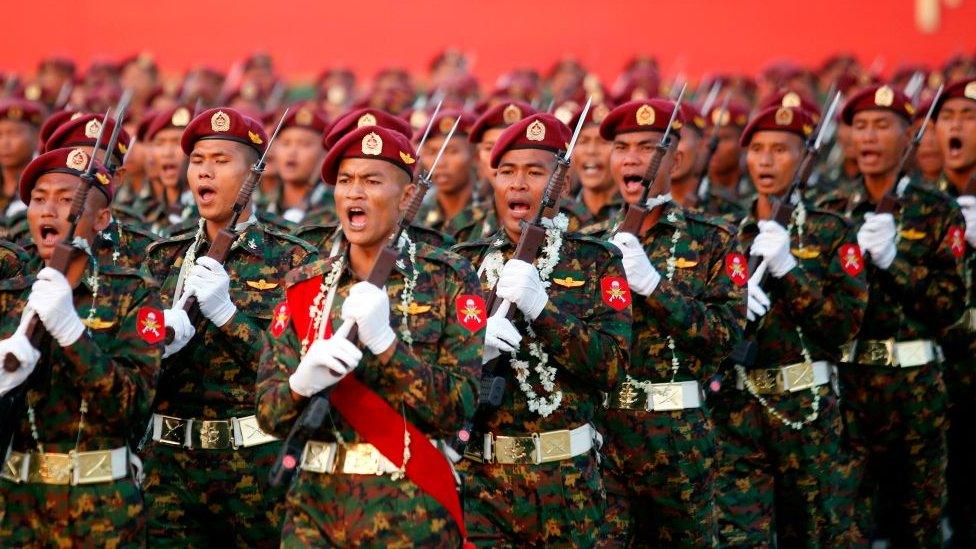
- Published12 March 2018
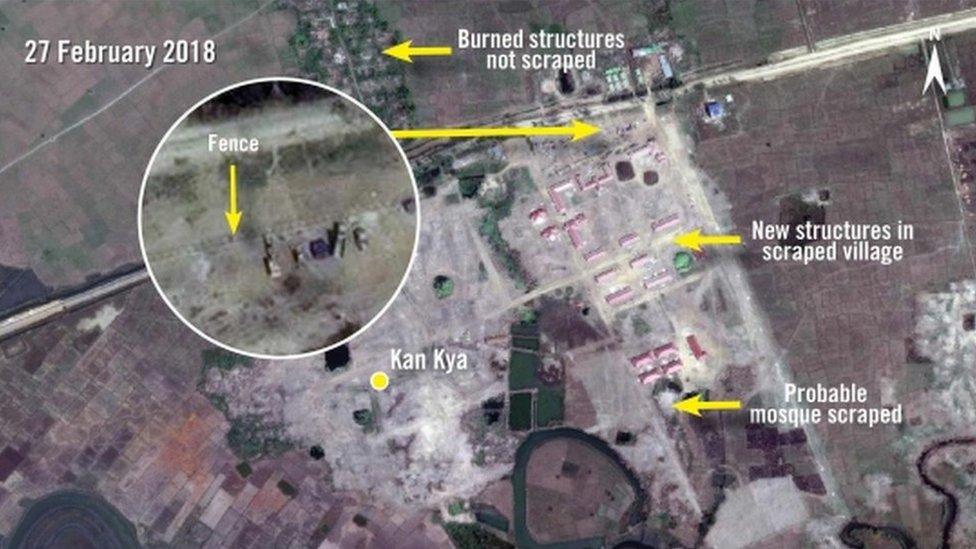
- Published23 January 2020
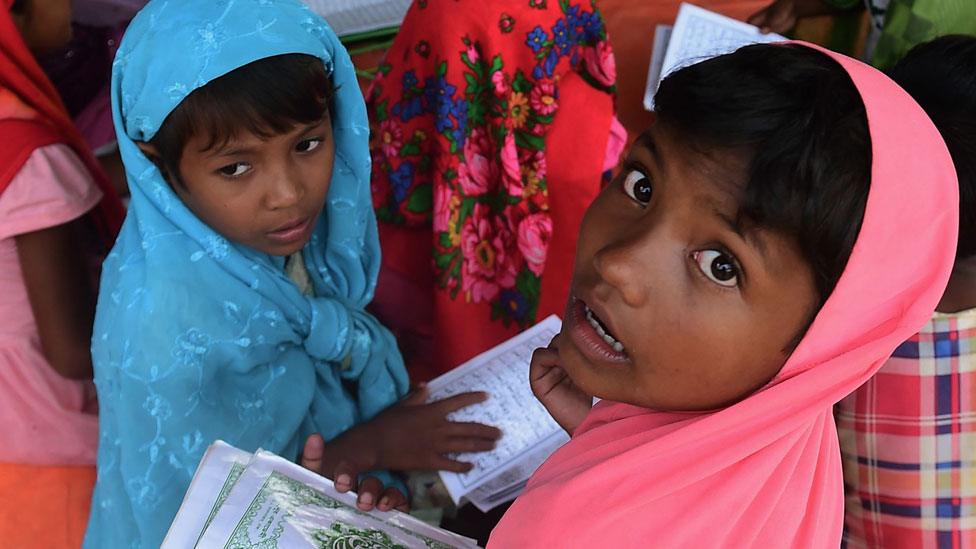
- Published13 March 2018
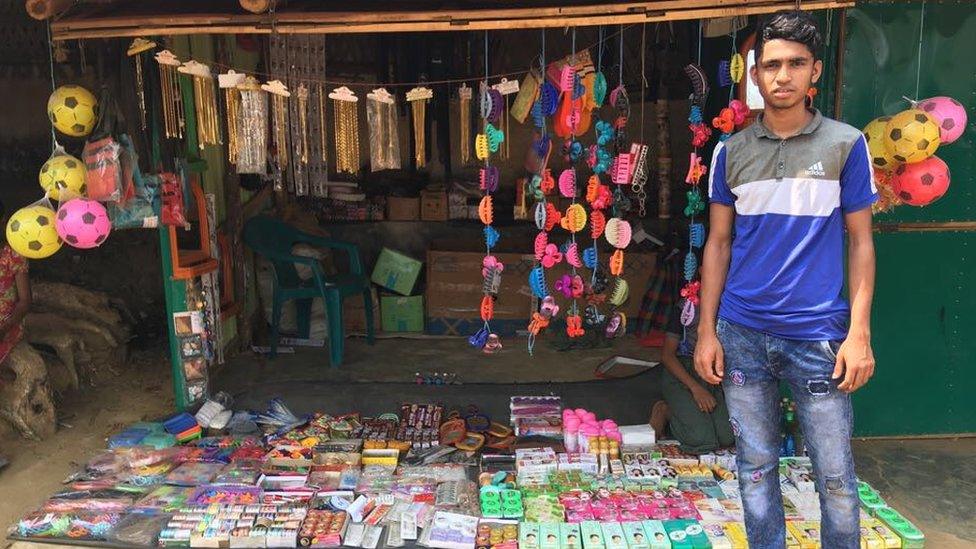
- Published6 March 2018
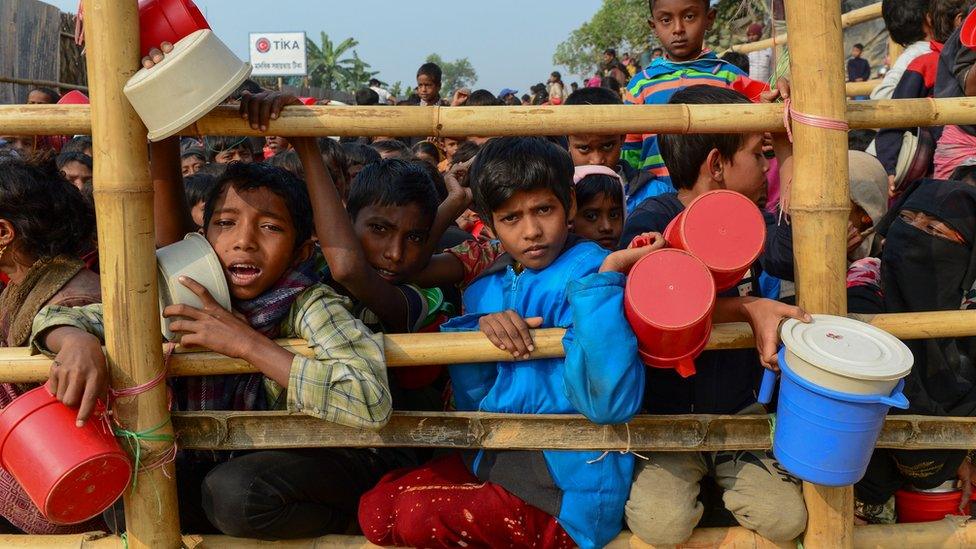
- Published8 February 2018
